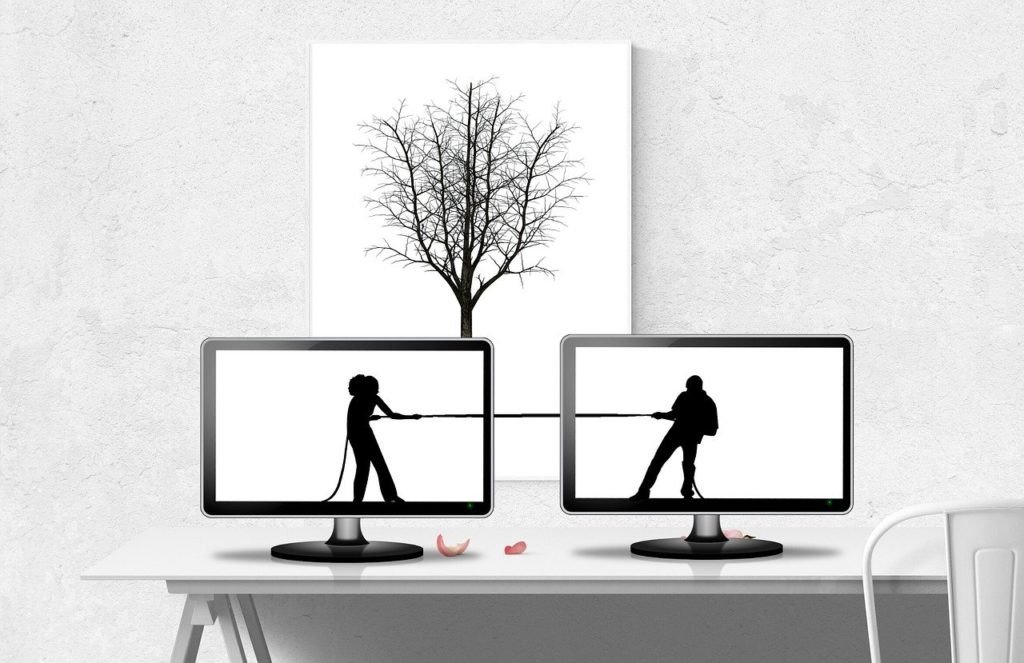More often than not, any time you come across the word “custody,” it is usually followed by “battle.” And, that’s just what happens when there’s a custody dispute.
Every child has the right and privilege to know and to be loved by both parents. The adults in the situation have to put their pride and ill feelings towards each other aside, to try and figure out an amicable way to get along for the sake of the kids.
Father’s rights in custody disputes have always been somewhat of a gray area. If the parents of the child were not married, it was common practice for the mother to be granted full custody.
This, unfortunately, meant that the father wouldn’t have as much access to the child as they would have liked. Getting custody, however, was completely out of the question.
The good news is that law has come a long way since then, and fathers too can now get custody rights over their children, regardless of their marital status. This article takes an in-depth look at everything you need to know about a father’s rights in custody disputes.
Mothers Rights vs. Fathers Rights
Custody issues are complex enough, even when both parents are married. It gets even more complicated when dealing with unmarried parents.

In such instances, the general rule is to grant primary custody of the child to the mother. So, she has complete authority to make every decision regarding the child’s welfare. This means she has the right to decide:
- Where they live
- Where the child will attend school
- Everything that has to do with the child’s health
- Where to take the kids on vacation…
You get the idea.
The mother of the child is responsible for all decisions that relate to her child’s welfare. This isn’t generally the case with the father’s rights.
In an ideal world, an unmarried man who desperately wants to be a part of his child’s life would be able to sit down with his child’s mother and come up with a workable arrangement for shared custody or visitation.
The keyword here is “ideal.”
Fathers Legal Rights to Child
If a father’s name appears on a child’s birth certificate, regardless of whether or not he is married to the mother of the child in question, in the eyes of the law, his parental rights hold equal weight to those of the mother.
When a married couple has a child together, the husband is presumed to be the father and is automatically listed on the certificate as such.
But, if they’re not married, and the father’s name isn’t listed on the birth certificate, the first step towards pursuing paternity rights, and hence some form of custody over his child, is by proving paternity. For that, he would need to get DNA-tested. That’s not the end of it, though.

Even if the DNA results prove that he is the biological father of the child, he needs to show the court that he can take on custodial rights and everything that comes with it. Keep in mind, though, that a single father can never be granted primary custody of the child if the mother is deemed by the court to be a good parent.
Nonetheless, securing his paternity rights opens up the door to working out a legally-binding shared custody agreement or visitation schedule. Always get the best fathers rights lawyer involved from the get-go.
Fathers Rights Child Support
Regardless of whether the parents of a child are married or not, the law requires both of them to financially support any children they have together.
The court looks at the responsibilities and incomes of each parent, to evaluate which of the two should be responsible for making the financial contributions in the form of child support payments.
If, however, the parent making the periodic payments goes through a rough patch and, as a result, is unable to fulfill their financial obligation. The court re-evaluates the amount payable based on the existing circumstances.
If the child in question spends the majority of their time living with one parent, the court usually holds the other parent responsible for the child support payments.
Divorce With Young Children
Once upon a time, there was a presumption that young children should always stay with their mother when the couple divorces. This has since changed.
Most states no longer honor that presumption and now recognize that a fathers custody rights are equally as important as those of the mother. Some states have gone a step further to pass laws with no custody preference for women over men when they split up.

Despite these developments, women are still more likely to gain primary custody of the children, mainly because courts consider the best interests of the child. And, these usually favor mothers since that’s the way the family unit is set up.
Divorce Advice for Men With Children
Here are a couple of things the judge looks at when ruling on custody cases involving the dads.
- The primary caregiver – This refers to the parent who is in the best position to meet the child’s daily needs and is the most willing to accept all the parental responsibilities that come with it.
Daily needs include activities like putting the child to bed, waking them in the morning, getting them ready for the day, making doctor appointments, playing with them, bathing them, and so on.
- Parent-child bond – The younger a child is, the stronger the mother-child bond will be. Although this isn’t a reflection on the parenting ability of the father, that’s just the way it is when children are young.
If, on the other hand, the father is involved with his child from the time they’re an infant, the closer their bond will be. So, if you’re looking to get joint custody, you need to learn how to provide the same level of emotional support, love, and care that your young children need, just like they’d get from their mom.
Fathers’ Rights Matter Too
Any father, regardless of their marital status, looking to get primary or joint custody of his child, needs to get in touch with the top child custody lawyers in their jurisdiction. They’ll explain to you in detail all the factors that the courts consider when determining how best to resolve a custody dispute.
That way, you can negotiate a custody arrangement that takes into account your child’s best interests. Your rights matter too. So, fight to be in your child’s life.
If you need further assistance, feel free to chat online with a Laws101.com attorney. We’re always available to provide guidance on any legal questions you may have.
